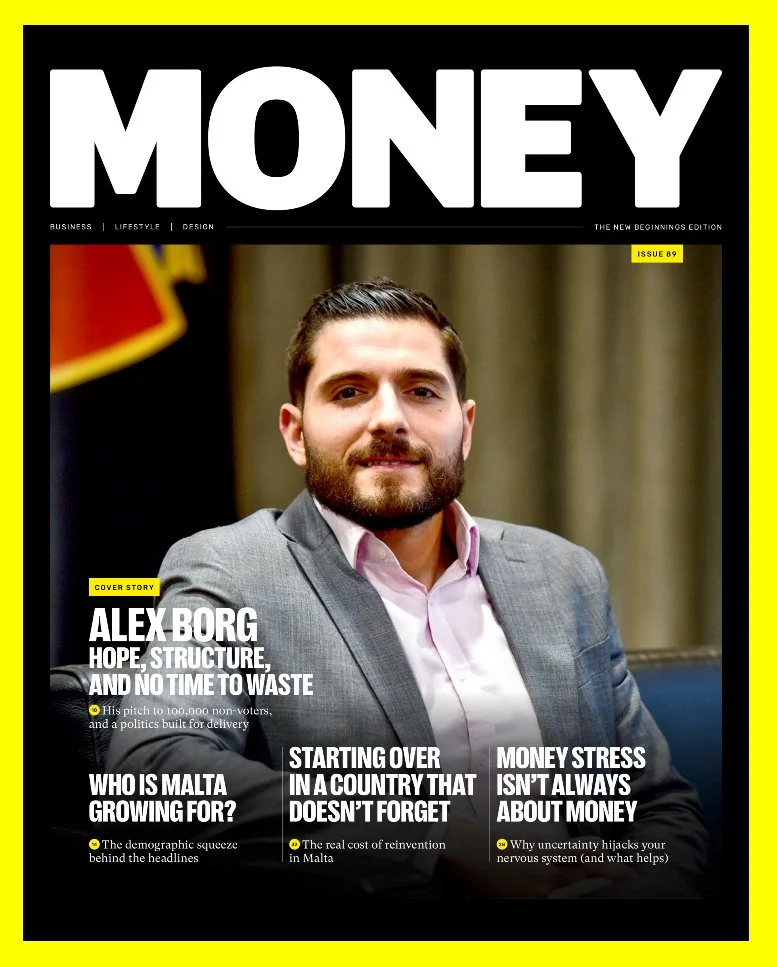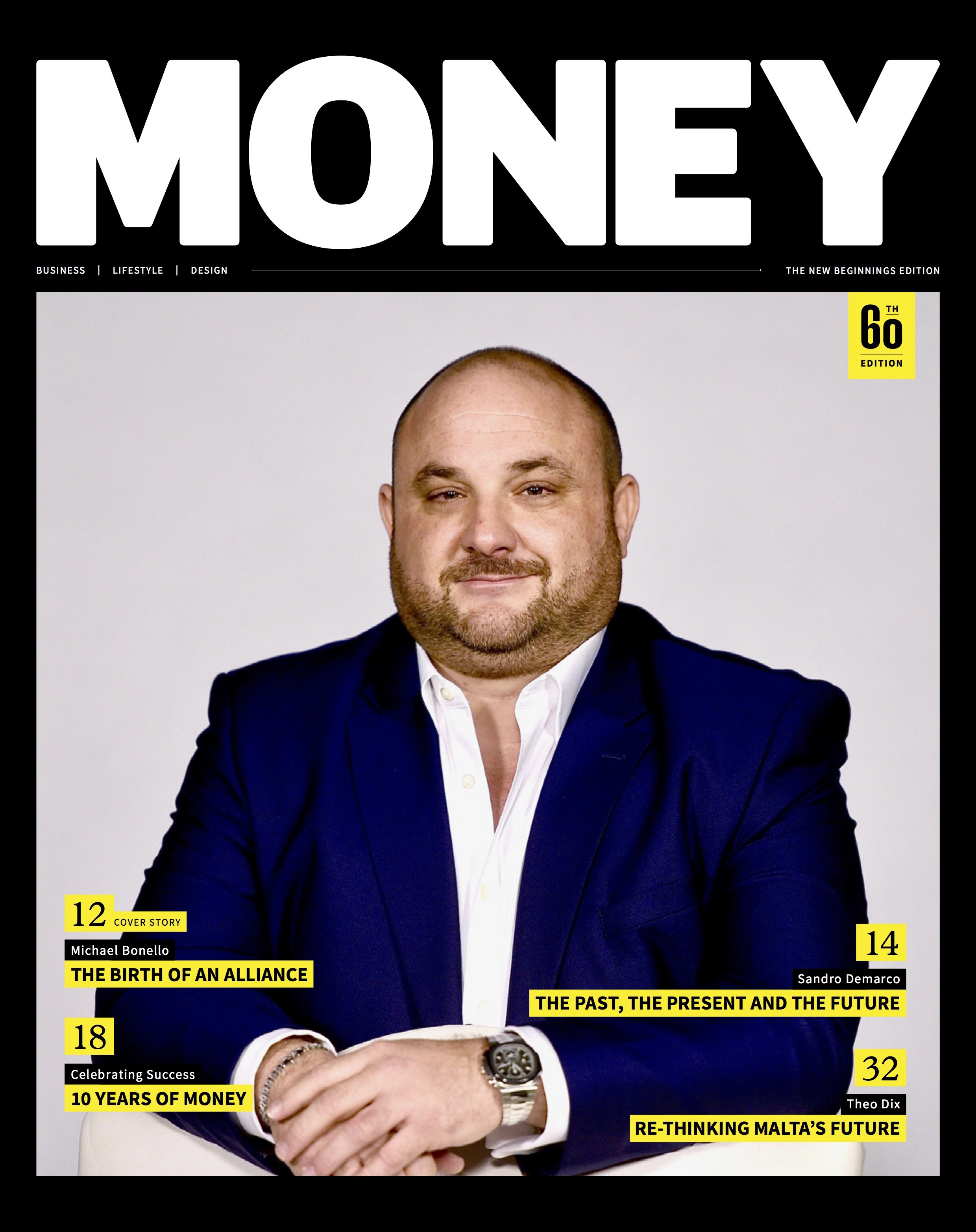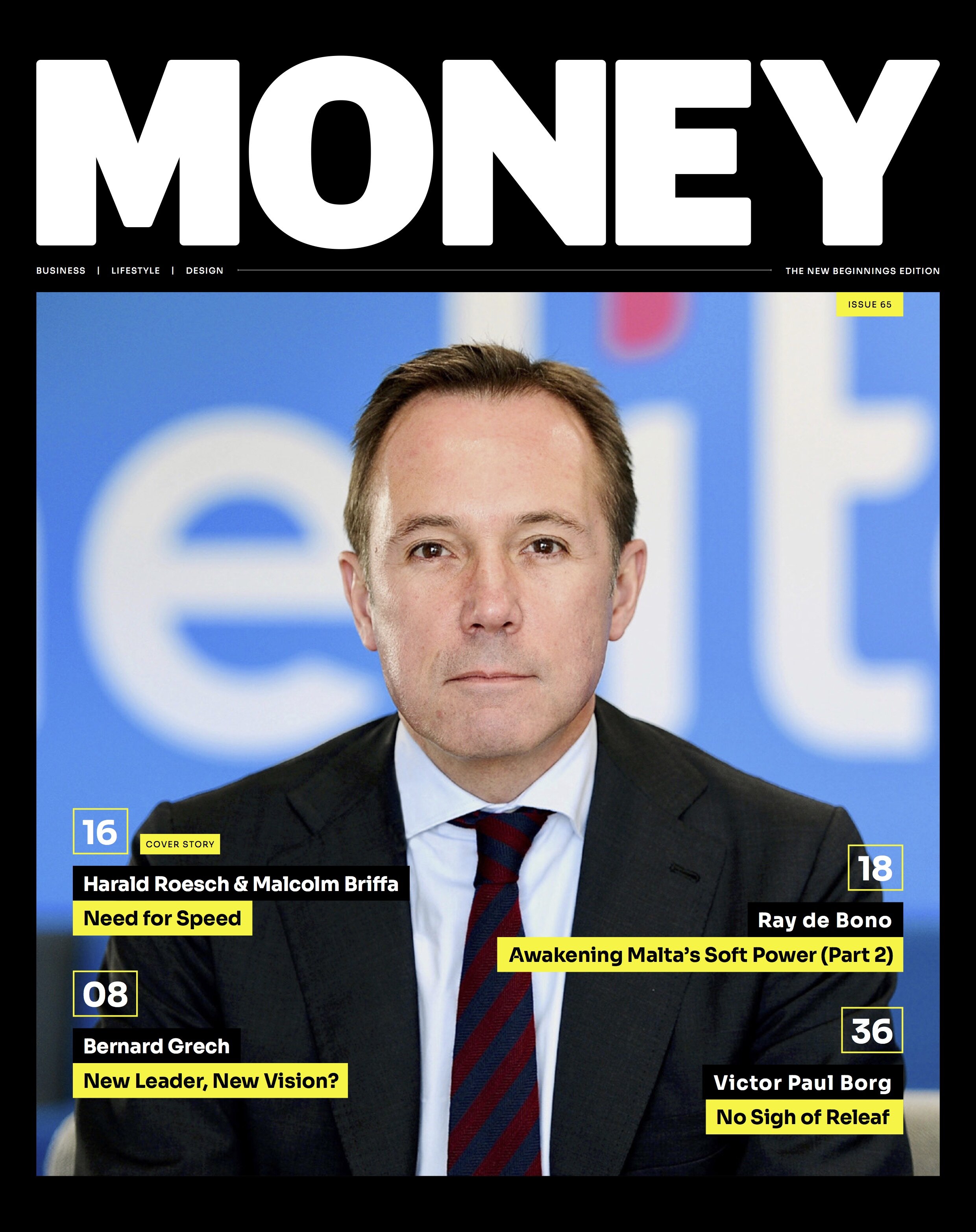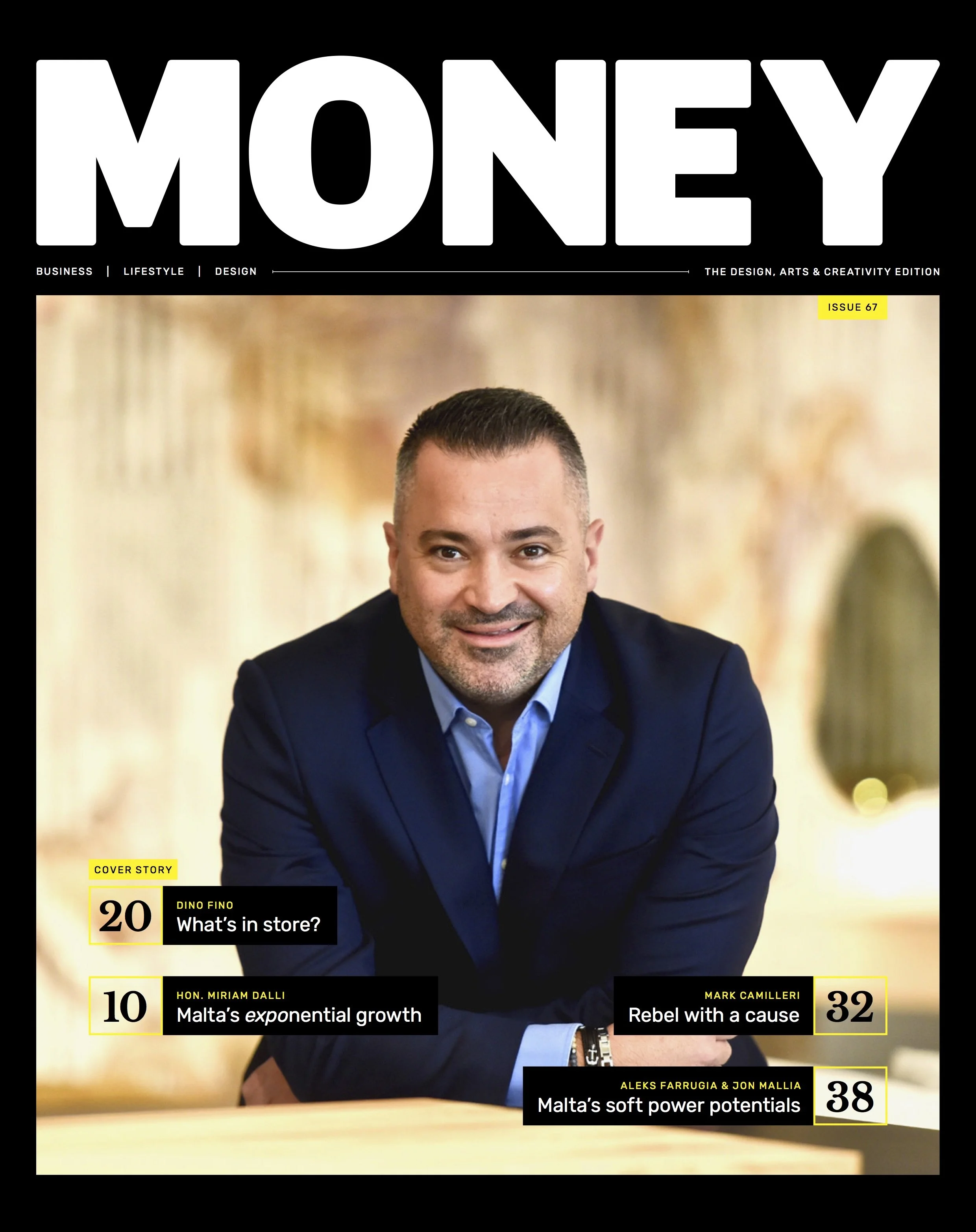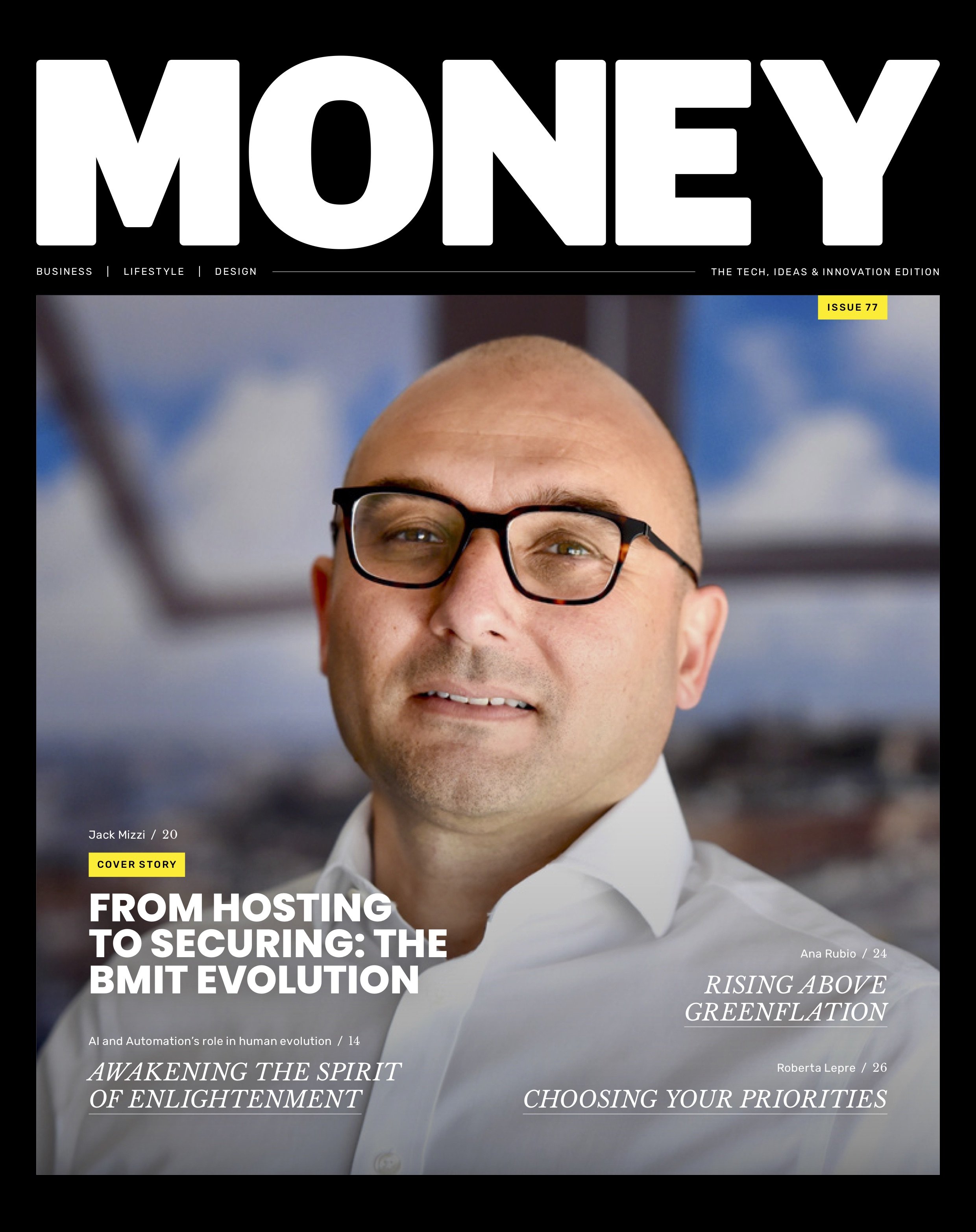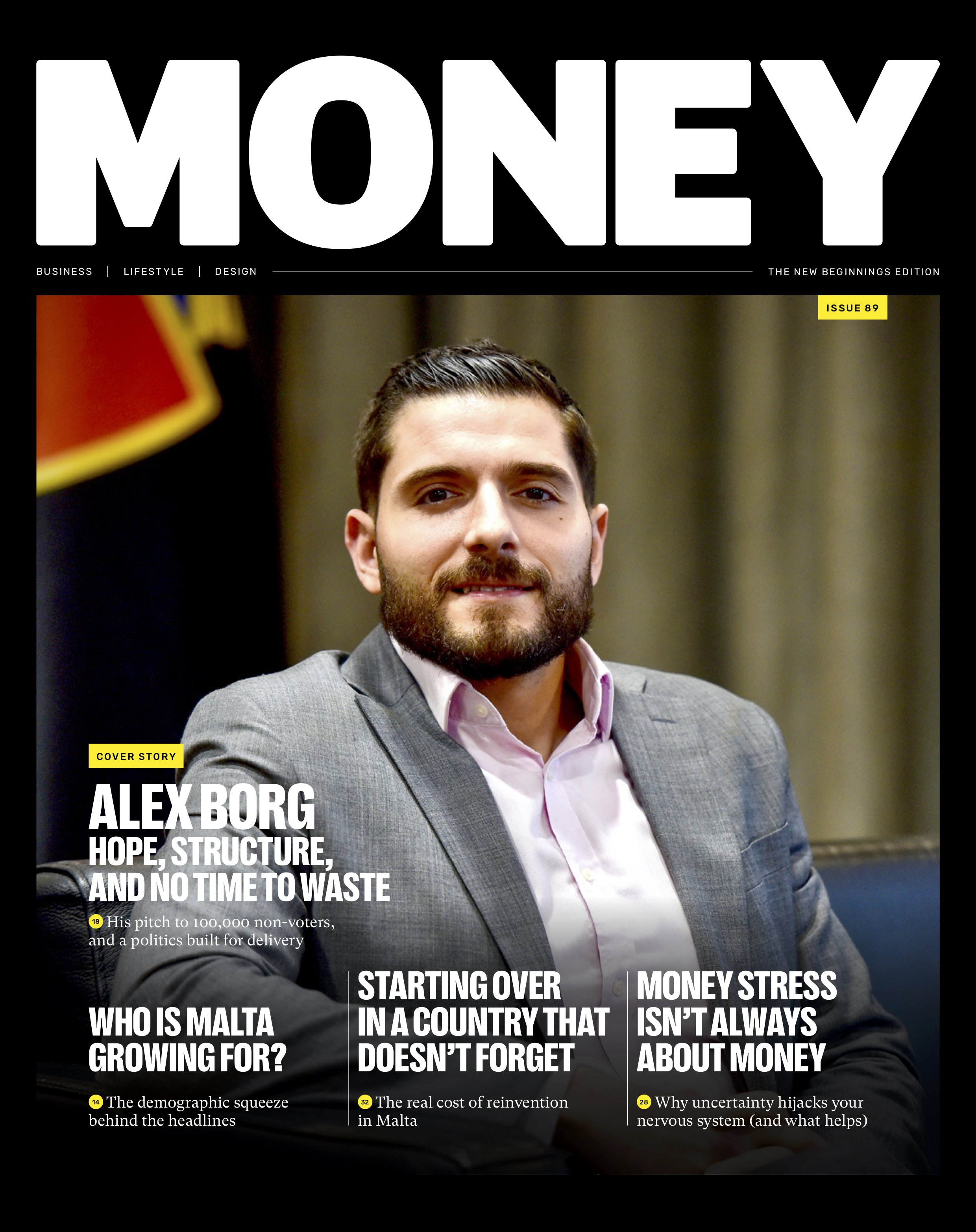MEET THE LEADERS AND DECISION MAKERS OF OUR ECONOMY
THE NEW
BEGINNINGS
EDITION
OUT NOW!
Your industry. Your story. Our platform.

Hope, structure, and no time to waste
It's only been months since Alex Borg took the helm of the Nationalist Party, but the countdown to an election year has already started. In this wide-ranging interview with Vanessa Macdonald, he lays out his pitch to Malta's 100,000 non-voters, his plan to rebuild trust through structure and transparency, and why the PN must act like a "government in waiting" — not an Opposition on pause.

Succession planning: Beating the odds
Vanessa Macdonald looks at why Malta's family businesses struggle to survive the handover. Succession isn't a box-tick—it's a high-stakes transition shaped by timing, governance, valuation and family dynamics. Plan early, talk honestly, and protect the legacy.

Money stress isn’t always about money
In Malta, money anxiety often hides behind “responsible” habits — checking apps, avoiding statements, delaying decisions. Dayna Clarke Camilleri speaks to psychotherapist Charlene Veneziani about why uncertainty hijacks the nervous system, and how self-understanding can restore financial calm.

Starting over in a country that doesn't forget
In Malta, reinvention isn't a lifestyle refresh—it's a negotiation with a country that remembers. Manuel Delia traces how public controversy, political undercurrents, and the economics of fear can freeze reputations in time, and what it really costs to start again.

The €10,000 trap: The most common mistakes first-time investors make
Saving your first €10,000 feels like a financial milestone. Investing often becomes an emotional minefield. From crypto hype to panic selling and fee blindness, first-time investors in Malta repeatedly fall into the same behavioural traps. Paul Rostkowski explains why the most significant risk isn't markets — it's decision-making.

Hype, hedge, or hub: what the UAE’s gaming move means for Malta’s iGaming future
Ras Al Khaimah isn’t trying to be Malta overnight. It’s trying to be next. Lea Hogg explains the UAE’s disciplined play: tight licences, strong banking, fast-aligned regulation — and why the smartest Malta firms won’t relocate, they’ll hedge. Malta’s challenge is adaptation.

The rise of the side hustle
In Malta, the side hustle is no longer a hobby — it's a second track. Stephen Mallia unpacks the rise of the "employee-owner": professionals building businesses after hours while juggling tax, mortgages, and the fear of betting personal savings on an unproven idea.

WHO IS MALTA GROWING FOR?
Malta is still growing — but the island is also tightening. MONEY explores the demographic squeeze behind the headlines: migration-driven labour, an ageing workforce beneath the surface, and a country testing its limits in housing, services, and cohesion.
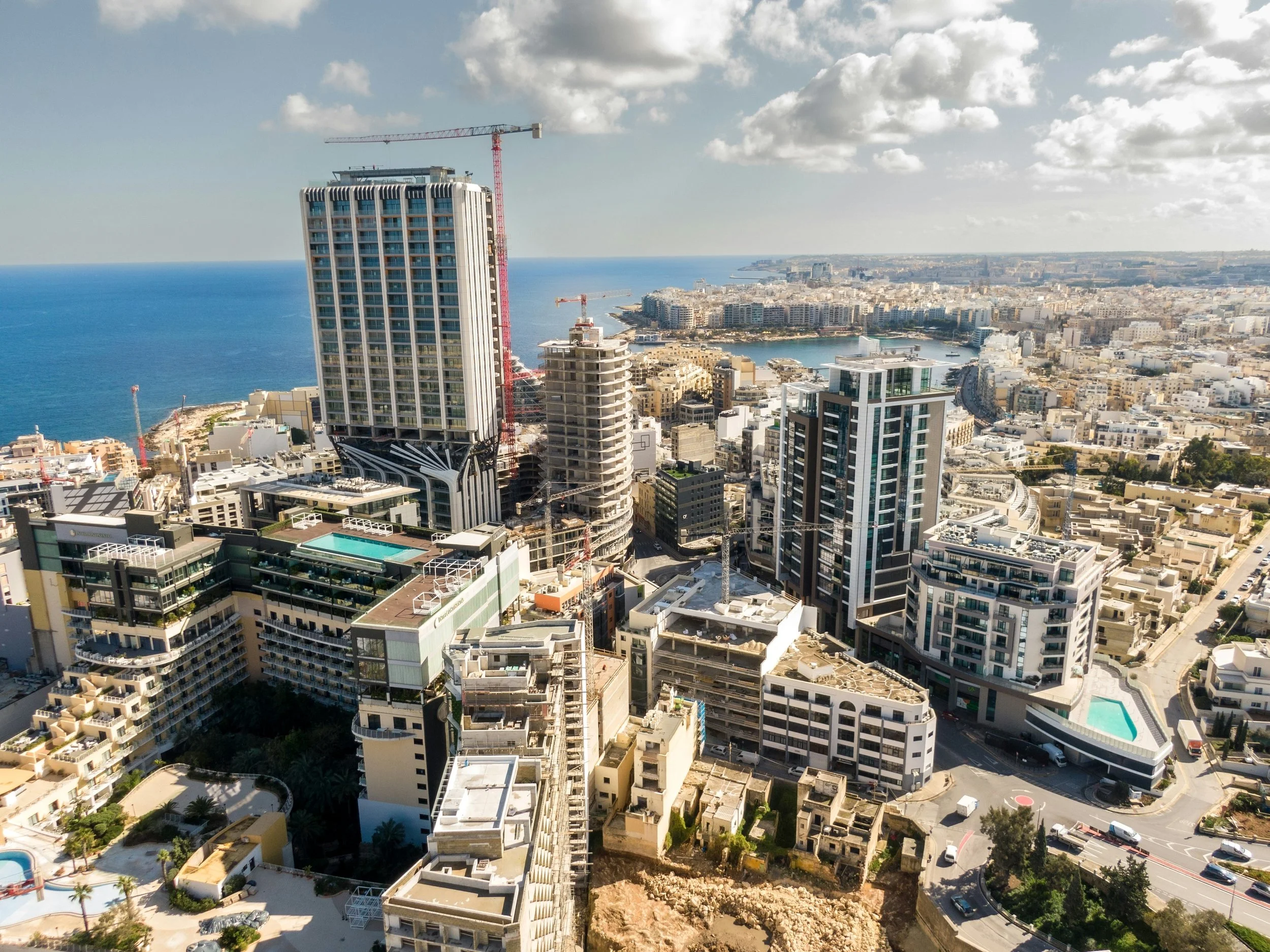
Beyond the boom: Malta’s new beginning
Malta mastered growth — but the next phase won’t be powered by volume alone. MONEY explores why the country is hitting hard limits in talent, cost and capacity, and why a real “new beginning” now means a pivot: from busy to better, and from expansion to value.

After Caracas: Power, precedent, and the new rulebook
Caracas rewrote the mood. Greenland widened the crack. MONEY examines how power is being exercised in 2026 — through force, energy flows and economic pressure — and why Europe is quietly arming itself with tools like the EU’s “trade bazooka”.

When Meta breaks: A Maltese publisher's account vanishes, support collapses, and the fight begins
When the Facebook account of Anthony P. Bernard, Be Communications' managing director and editor, was hacked, he expected a recovery process — not a digital maze. What followed was months of conflicting decisions, vanished business pages, a fictitious Instagram "violation", a fake hacker appeal link, and support loops that led nowhere. He explains how one hack spiralled into a full-blown business risk — and why he's still fighting for accountability.

Accountable Leadership
From record visitor numbers to record scrutiny, Malta's tourism model is at a turning point. In this MONEY cover story, Tumas Group's Ray Fenech talks quality over volume, governance and reputation, sustainability, and the next generation of leaders shaping how Malta competes – and wins – in the decade ahead.

Making ADHD work: A neurodiversity roadmap for Maltese workplaces
As more and more Maltese workplaces wake up to the reality of adult ADHD, Dayna Camilleri Clarke speaks to Professor Nigel Camilleri to uncover how practical, low-cost adjustments can unlock talent, strengthen teams, and build more resilient organisations.

The four-day week: promise, proof, then policy
Malta’s four-day week debate is growing louder. Lea Hogg examines the 100-80-100 model—100% pay, 80% hours, 100% output—and argues for targeted pilots. Start in digital, measurable roles, track output per hour, turnover, sick days and SLAs, then scale on evidence.

Branding Malta’s hotels: Diversification, global names and the next chapter
For sixty years, hotels have underpinned Malta’s tourism success. Today, record arrivals, planning reforms and global brands are reshaping hospitality. Justin Mizzi (QP) and Kris Bartolo (Zampa Partners) show why Malta’s next era hinges on hotel branding, guest experience and value.

Cosmopoesis and how it redefines leadership in the 21st century
In the 21st century, leadership is less about control or metrics and more about creating environments where people can think, build and grow. For Lea Hogg, who has followed Malta’s entrepreneurs for years, SiGMA offers a valuable case study in a new mode of leadership she explores: cosmopoesis, the art of world-making.

The Governance Premium: How 'clean' Maltese firms win EU contracts
Manuel Delia shows why EU buyers score integrity alongside price: ISO-backed anti-bribery, whistleblowing and audit trails lift technical points, cut vetting, and help Maltese bidders overcome reputational drag in tenders.

Agency fees vs hidden HR costs: Why outsourcing recruitment pays off
In Malta’s tight labour market, recruitment isn’t a simple HR admin task anymore. This feature unpacks the real costs of vacancies and bad hires, and when partnering with a specialist agency like M Recruitment, it delivers better value and local reach.

Don’t chase. Choose. – A simple way to pick funds without FOMO
Licensed investment professional Paul Rostkowski explains how Maltese investors can avoid FOMO, stop chasing hot funds and build calmer, goal-based portfolios using a simple three-step framework: Purpose, Profile and Plan.

Scammed in Malta: move first, think clearly, get your money back
Fell for a fake bank text, courier link or “investment” pitch? This MONEY guide shows what to do in the first hour, who to contact in Malta, and how to build a refund case that banks and investigators take seriously.



